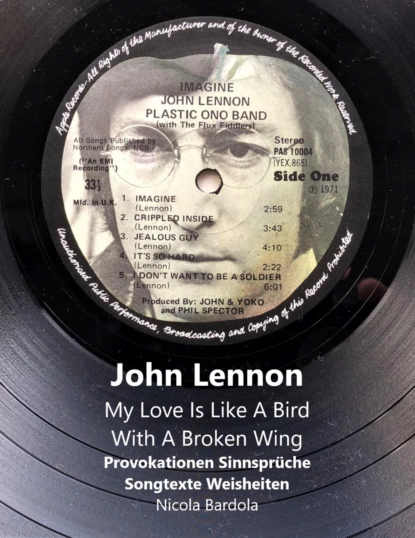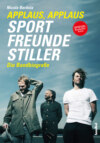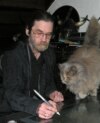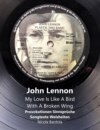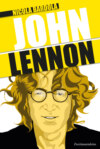Umfang 212 Seiten
John Lennon - My Love Is Like A Bird With A Broken Wing
Über das Buch
John Lennon neu entdecken in überraschenden Songzeilen.
John Lennon wiederentdecken in hellsichtigen Gesprächen.
Zitate aus über 130 Interviews mit John Lennon, über 80 Zitate aus John Lennons Solo-Songs und etwa ebenso viele aus seiner Zeit mit den Beatles bilden den Kern des Buches. Jedes Lied, das der berühmteste Sohn Liverpools federführend schrieb, wird hier genannt und eine besondere Passage daraus zitiert. Hinzu kommen über 100 Aussagen John Lennons zwischen 1957 und 1980.
Die chronologische Gliederung der Songs wird durch thematisch passende Äußerungen Lennons ergänzt. Kommentare und neue Recherchen des Herausgebers ordnen Liedzeilen und Interviews in die Schaffensperioden des Rockstars ein. So entsteht ein nie dagewesenes (Selbst-) Portrait des Musikers, Künstlers und Friedensaktivisten John Lennon. Dabei wird deutlich, wie sehr sich John Lennon im Lauf der Jahrzehnte entwickelt und verändert und dass ein abschließendes Bild und Urteil nicht möglich ist. Im Gegenteil, es stellen sich neue Fragen: Woher hat John Lennon den Toppermost-Poppermost-Spruch? Was hat John Lennon mit Khalil Gibran, Allen Saunders oder Fernando Tavares Sabino gemeinsam? Das Buch geht auch den Ursprüngen vieler Lennon-Zitate nach.
Mit Quellenangabe für jedes Zitat von John Lennon.
Mit der Transkription des schockierenden Audio Tagebuchs von 1979.
Mit neuen Erkenntnissen zum Toppermost-Poppermost-Spruch.
Mit Informationen zum Savile Row Tape, das 2019 weltweit für Schlagzeilen sorgte.
Mit wenig beachteten Versen aus selten gespielten Songs.
Mit Raritäten aus den oft stundenlangen Interviews.
Mit Zitaten von Freunden und Weggefährten über John Lennon.
Mit einer Analyse zweifelhafter und definitiv falscher Lennon-Zitate.
Mit einer umfassenden Bibliographie für eine weiterführende Lektüre.
Und mit «Enze cusum dedei stobodai tscho …», John Lennons Indien-Kauderwelsch im Gespräch mit Kenny Everett im Juni 1968, das hier erstmals «ins Deutsche» transkribiert wird. Mit der Neudatierung des Satzes «All we're saying is give peace a chance»: Der Songtitel fällt bereits bei der Bagism-Pressekonferenz im Hotel Sacher in Wien am 31. März 1969 und nicht erst – wie oft kolportiert – beim Bed-In in Montreal Ende Mai 1969. Mit dem Song John Lennons, den Frank Sinatra singen sollte. Mit vielen weiteren überraschenden Fakten und Extras. Und mit sehr vielen Texten, die bisher nie in Buchform erschienen sind. Könnte John Lennon heute eine Autobiographie schreiben, wäre dies möglicherweise ihre Essenz.
"I like 'Across the Universe': It's one of the best lyrics I've written. The ones I like are the ones that stand as words, without melody. They don't have to have any melody, like a poem, you can read them."
John Lennon, 1970
Das große Lennon Lesebuch, herausgegeben vom Verfasser der Biographien über John Lennon («Eine Neudeutung» Tagesspiegel), über Yoko Ono («Vielleicht das erste große und komplexe Werk, das Yoko Ono gerecht wird», mdr) und über Ringo Starr («Auch die bekannten Jahre hat Bardola mit überraschenden Anekdoten gespickt», Deutschlandradio).
Nicola Bardola, geboren 1959 in Zürich, studierte Germanistik und lebt seit 40 Jahren in und um München. Bekannt wurde er durch den Roman «Schlemm» und durch die Biographien über Yoko Ono und John Lennon. Zuletzt erschienen «Elena Ferrante – meine geniale Autorin» (Reclam) und «Ringo Starr – Die Biographie» (Edition Olms).
